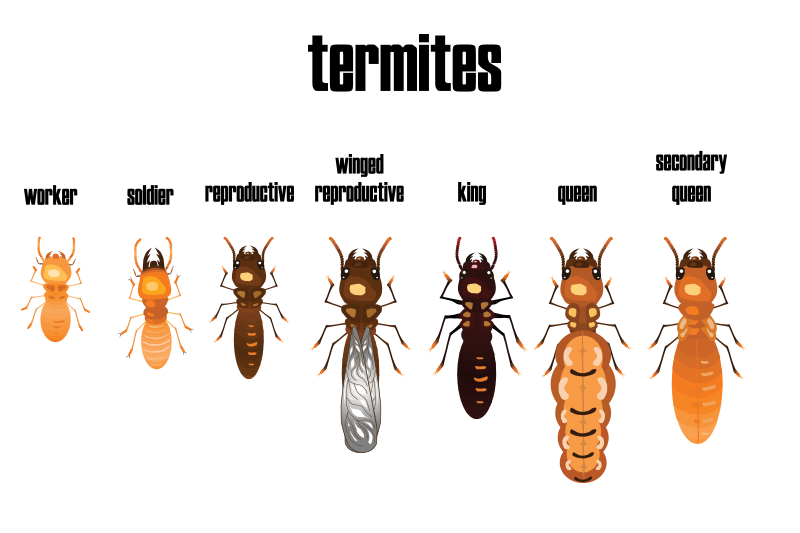Environmental Effect of Parasite Control: Harmonizing Efficiency With Sustainability
The environmental impact of parasite control is a critical issue that calls for a fragile equilibrium in between achieving effectiveness in making certain and handling pests sustainability of our communities. From the use of hazardous chemicals that leak into our dirt and water to the unplanned repercussions on non-target types, the repercussions of conventional bug control methods are significant.
Hazardous Chemicals in Parasite Control
The application of dangerous chemicals in insect control poses significant ecological and health risks that require cautious consideration and mitigation strategies. Pesticides, chemicals, and herbicides are generally utilized to eliminate bugs, however their widespread application can bring about unexpected effects. These chemicals can contaminate dirt, water sources, and the air, influencing not just the targeted pests but additionally beneficial insects, wildlife, and humans.

To attend to these risks, integrated bug monitoring (IPM) strategies are being promoted as an extra sustainable choice. IPM entails a mix of techniques such as biological control, habitat control, and the targeted use pesticides as a last resource (ant control mooresville nc). By taking on a holistic method to pest control, we can minimize the environmental and health effects connected with harmful chemicals while successfully managing pest populaces
Influence On Non-Target Types
Considering the unintentional repercussions of insect control approaches, the effect on non-target types is an important element that needs thorough examination. While pest control actions aim to target certain parasites, other organisms in the community may be inadvertently affected. Non-target species, consisting of useful pests, birds, mammals, and even plants, can suffer direct or indirect injury from pesticide applications or biological control approaches.
Insecticides developed to combat a certain insect parasite may damage pollinators like or natural predators such as ladybugs. Biological control agents, if not species-specific, can present threats to unintentional targets, interrupting the ecological balance.
To reduce the influence on non-target species, incorporated insect administration (IPM) strategies that emphasize an alternative strategy to pest control are advised. These approaches prioritize using eco pleasant methods, lessening injury to beneficial organisms while successfully handling pest populations. Performing extensive threat analyses and monitoring the end results of parasite control initiatives are essential action in safeguarding non-target varieties and advertising overall ecological community wellness.
Dirt and Water Contamination
Unplanned ecological consequences of pest control approaches extend past influencing non-target species, with substantial implications for dirt and water contamination - ant control services. Chemicals, herbicides, and chemical plant foods utilized in bug control can leach right into the soil and pollute groundwater, posturing a hazard to both earthbound and marine communities.
Water contamination is an additional critical issue associated with insect control methods. To alleviate dirt and water contamination from bug control activities, incorporated pest management approaches that focus on sustainability and decrease chemical inputs are important.
Air Air Pollution From Pesticide Usage
Direct exposure to airborne chemicals throughout agricultural applications postures a substantial issue for air pollution control steps. In addition, pesticide drift, where pesticides are brought by the wind to unintended areas, can lead to the contamination of neighboring ecosystems and water bodies.

Methods for Lasting Parasite Control
In the world of agricultural practices, applying sustainable insect control techniques is vital for keeping eco-friendly equilibrium and guarding plant returns. Lasting bug control stresses the usage of eco-friendly approaches to take care of bug populaces effectively while minimizing harm to non-target organisms and environments. Integrated Parasite Management (IPM) is a widely taken on strategy that incorporates organic, cultural, physical, and chemical control methods to achieve lasting parasite monitoring options.
One secret technique in lasting parasite control is advertising biodiversity within agroecosystems. By improving natural adversaries of bugs, such as killers and parasitoids, farmers can reduce the demand for artificial pesticides. Crop turning and diversity are likewise reliable techniques to disrupt pest life cycles and develop less beneficial problems for parasites to grow. In addition, making use of pest-resistant crop selections and utilizing techniques like trap cropping can help in reducing insect stress without depending greatly on chemical treatments. Inevitably, by incorporating these lasting insect control approaches, farmers can attain an equilibrium between pest monitoring efficiency and ecological stewardship.
Final Thought
Finally, the ecological influence of insect control approaches should be meticulously considered to stabilize performance with sustainability. Damaging chemicals made use of in pest control can result in soil and water contamination, air contamination, and harm non-target species - termite control services. It is essential to carry out lasting parasite control techniques to lessen these adverse effects on the environment and promote a healthier environment for future generations
By taking on an alternative method to pest control, we can decrease the environmental and health impacts connected with dangerous chemicals while properly handling pest populations.

To alleviate the air pollution triggered by chemical use, it is crucial to embrace incorporated parasite monitoring techniques that focus on the use of non-chemical insect control approaches, such as crop turning, natural predators, and resistant crop selections. Lasting bug control emphasizes the use of eco friendly methods to handle more helpful hints parasite populations efficiently while minimizing harm to non-target microorganisms and ecosystems. Integrated Insect Administration (IPM) is an extensively taken on approach that integrates biological, cultural, physical, and chemical control approaches to attain long-term bug management remedies.
Comments on “Why Choose Our Termite Control Services: Specialist Solutions for Effective Security”